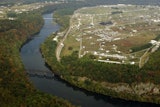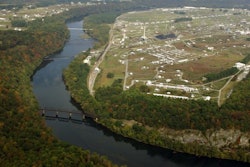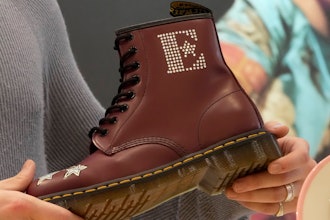To fully appreciate just how many potential applications there are for ABB Drives' growing product line, consider what the company is doing with Indianapolis, IN based Midwest Engineered Products (MEP) Inc. By applying one of ABB Drives' newest technologies, MEP has developed a new and improved industrial centrifuge -- a relatively small but important manufacturing component that helps all types of industries reduce both production and waste disposal costs.
Simply put, a centrifuge is a machine that spins at a high rate of speed to separate solids from a liquid. Once the liquid is processed drained, the leftover solids are then removed and disposed of. This process technology has long been recognized as an effective way to keep expensive fluids used in industrial processes -- such as painting or treating automotive parts -- clean enough to be re-used.
However, centrifuge equipment has always had a dark side: reliability. In harsh, industrial environments, traditional centrifuge designs often break down. That, in turn, can affect assembly line operations. As a result, the use of centrifuge equipment is limited in many industries. The problem often centers on the relationship between the centrifuge motors and/or other internal components. Sometimes another component, like the internal scraper used to remove the solids from the side of the bowl, will jam, while its motor keeps running. Eventually something has to give -- often the scraper shaft or a motor bearing or drive component-- and the centrifuge must be taken out of service for repairs.
As a solution, MEP designed a new centrifuge (CentraSep®), outfitted with a single motor operated by an ABB drive that utilizes ABB's proprietary Direct Torque Control (DTC) technology. Like an electronic brain, the DTC-equipped drive controls, monitors, and communicates with the centrifuge motor by automatically sending and receiving some 40,000 messages per second.
The drive ensures that the centrifuge motor always operates in accordance to exact design specifications. And, if the scraper or any other component begins to jam, the drive immediately senses the problem and shuts the centrifuge down before any damage can occur. An operator can then attend to the problem and get the centrifuge up and running again quickly.
Introduced in 1999, the MEP centrifuge is a hit. With most units priced around $50,000, sales rose to $3.65 million last year.
"Our proprietary technology has allowed MEP to resolve what had been the primary issue with centrifuge equipment," says Mark Kenyon, a product manager with ABB Drives. "Our drives offer enormous precision. They not only give you precise control over the speed of the motor, but also the ability to quickly respond to anything that happens to it. No other drives supplier can provide a synaptic connection that fast."
Lanz Cabinets in Eugene, OR, makes custom and multi-family cabinetry. In 1999, it replaced a new but problematic skimmer cloth filtration system in its robotic paint booth with an MEP centrifuge. Paint booth throughput and uptime have since increased, specialized chemicals are used completely, and the water content in the separated-out paint solids has been cut by one-third -- all of which improved plant output and reduced the company's waste disposal costs.
"The MEP relationship illustrates the many ways drives technology can be used," Kenyon says. "Whether the application involves a single motor on a centrifuge, or multiple motors on a paper machine the length of a football field, our drives improve operations by reducing downtime."























